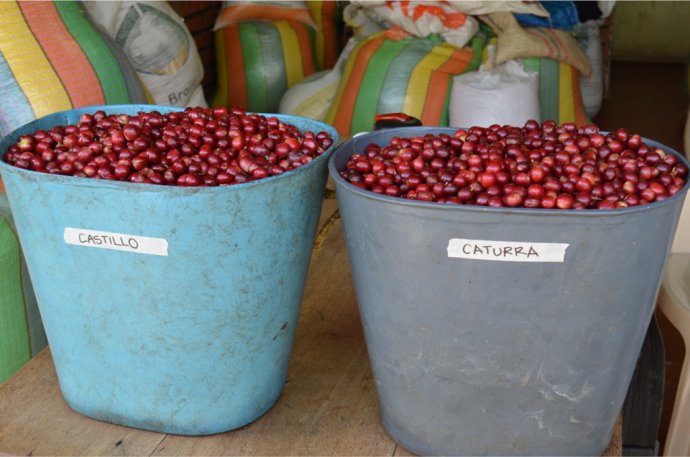What does NINETY PLUS 90 + company introduce to be 90percent? What are the varieties of 90 +?

2170NINETY PLUS introduction
Ninety plus is an American coffee company with unique style. Founded by Joseph Brodsky in 2004, it has been looking for wild Gesha (Geisha) varieties in Ethiopia.
During this period, wild varieties were found in Beloya and Aricha areas, and the status of Ninety Plus raw beans was established.
Ninety plus's practice is to find valuable beans with precise and effective evaluation, and greatly improve the post-processing process to ensure that coffee cherries produce high-quality raw beans. At the beginning, we cooperated with local estates in Ethiopia to participate in planting, sampling, harvesting, treatment, cup testing and classification, describing different coffee varieties and treatments with unique flavor.
Joseph Brodsky founded Ninety Plus Gesha Estates in Panama in 2009 to grow Ethiopian native Gesha variety (Heirloom Gesha) and original treatment method SolkilnTM (SK), which uses log drying chamber to dry raw coffee beans to overcome the humidity problem in Panama and began to produce high-quality Gesha coffee beans in 2011.
At present, the two major product lines of Ninety plus-Panama Gesha and Ethiopia are mainly native varieties.
"raw bean treatment method"
Ninety plus grades, batches and numbers are different from traditional raw bean merchants.
Different from the traditional water washing (W), honey treatment (H) and sun treatment (N), it is a simple treatment method.
Ninety plus coffee beans were distinguished by exclusive treatment [W2, H2, N2, SK]
Not only the classification of treatment, but also the classification of strong degree of flavor after treatment.
* W2 (lower) … Emphasize brightness, acidity, and flower-washing treatment
* H2 (relatively warm)... Emphasize sweetness, fruit taste (non-fruit flavor) and tea-honey treatment
* N2 (higher)... Emphasis on unrestrained, sweet and sour, jam and dried fruit-traditional Ethiopian natural treatment
* SK (higher) … Emphasize unrestrained, floral, rich lemon-laboratory drying treatment
The latter number "2" represents a new "second generation" treatment method which is different from the traditional coffee bean processing technology by carefully controlling and fine-tuning the environmental humidity, soaking time, fermentation time, moisture content and other factors.
"grading of raw beans"
Ninety Plus is divided into at least three grades from low to high according to quality, quantity and production cost.
* Level 4: mixed harvesting is used to enhance the characteristics of very few beans (Microlot) in a single producing area when the level is not up to the standard of separate harvesting and treatment.
* Level 7: rare varieties with fine taste or special flavor are selected by hand in a single harvest, and then nearly 90 points of beans are treated to more than 90 points by Ninety Plus method.
* Level 12: a single harvest of natural jade, and then after Ninety Plus natural natural carving, far better than 90 points.
"area code"
NPGE deducts the original forest area from an area of 300 acres and is divided into 36 areas from E1~E36, each with different microclimate and soil environment. Ninety Plus treats the coffee beans harvested in each area independently, showing the exclusive flavor of the region.
Important Notice :
前街咖啡 FrontStreet Coffee has moved to new addredd:
FrontStreet Coffee Address: 315,Donghua East Road,GuangZhou
Tel:020 38364473
- Prev

Description of Ninety Plus Nekisse N2 Sidamo 90 + Coffee Flavor and aroma
For professional baristas, please follow the coffee workshop (Wechat official account 44290 + Ethiopian Nekisse is originally produced in Shakisso, Ethiopia, and this coffee bean is named Nekisse after NAKED from the Shakisso region. With the traditional sun treatment, the cherries were dried on a high shelf, and then the dried peel was removed.
- Next

Arabica coffee varieties: Castillo Castillo Introduction
Professional barista exchanges, please pay attention to coffee workshop (Weixin Official Accounts cafe_style) Coffee varieties: Castillo Castillo introduced Castillo, or castillo variety, or castillo cultivar, is a coffee variety developed by Colombia Coffee Research Institute in 2005 based on enhanced plant disease resistance. It is currently the main cultivar in Colombia. ca
Related
- Detailed explanation of Jadeite planting Land in Panamanian Jadeite Manor introduction to the grading system of Jadeite competitive bidding, Red bid, Green bid and Rose Summer
- Story of Coffee planting in Brenka region of Costa Rica Stonehenge Manor anaerobic heavy honey treatment of flavor mouth
- What's on the barrel of Blue Mountain Coffee beans?
- Can American coffee also pull flowers? How to use hot American style to pull out a good-looking pattern?
- Can you make a cold extract with coffee beans? What is the right proportion for cold-extracted coffee formula?
- Indonesian PWN Gold Mandrine Coffee Origin Features Flavor How to Chong? Mandolin coffee is American.
- A brief introduction to the flavor characteristics of Brazilian yellow bourbon coffee beans
- What is the effect of different water quality on the flavor of cold-extracted coffee? What kind of water is best for brewing coffee?
- Why do you think of Rose Summer whenever you mention Panamanian coffee?
- Introduction to the characteristics of authentic blue mountain coffee bean producing areas? What is the CIB Coffee Authority in Jamaica?

